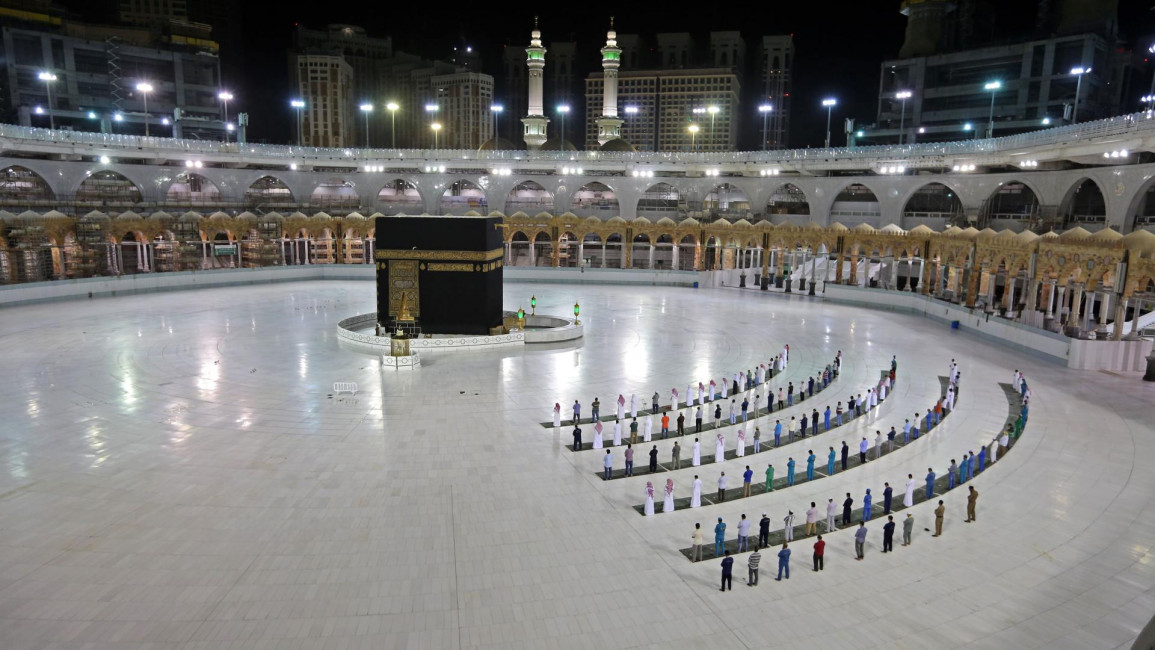Iran criticises 'unsatisfactory' exclusion from Saudi Hajj plans
In a statement published by the state-owned Arabic-language Al-Alam website, Iran's Hajj and Pilgrimage Organisation criticised the hugely scaled-back event for excluding Iranian pilgrims.
Saudi Arabia's Hajj minister confirmed on Tuesday that this year's pilgrimage will be dramatically reduced to around 1,000 participants of different nationalities, but who are already in the country.
Saudi Arabia usually allots a quota of Iranian pilgrims permitted for the annual pilgrimage to the holy city of Mecca.
Last year, roughly 2.5 million Muslims took part, including 86,500 Iranians.
The organisation said it had expected the Saudi government to consult other Islamic countries about the best way to conduct the Hajj during the pandemic.
Twitter Post
|
Riyadh has not yet responded to the statement.
Saudi Arabia's Health Minister Tawfiq al-Rabiah said on Tuesday that the pilgrimage, scheduled for the end of July, will be limited to those below 65 years of age and with no chronic illnesses.
The pilgrims will be tested for coronavirus before arriving in the holy city of Mecca and will be required to quarantine at home after the ritual, Rabiah added.
Both Iran and Saudi Arabia are struggling to contain second waves of the virus outbreak.
Iran on Tuesday reported its highest daily death toll from Covid-19 since April.
Meanwhile, last week Saudi authorities reported a record number of new coronavirus infections, following a gradual easing of lockdown measures. A government spokesperson blamed the spike on the public failing to adhere to social distancing regulations.
In 2016, Iran decided not to send pilgrims to Mecca, due to political tensions and a crisis with Riyadh following the death of scores of Iranians the previous year in a stampede at the holy mosque.
The 2015 stampede killed at least 2,177 pilgrims, including 464 Iranians.
Follow us on Facebook, Twitter and Instagram to stay connected



